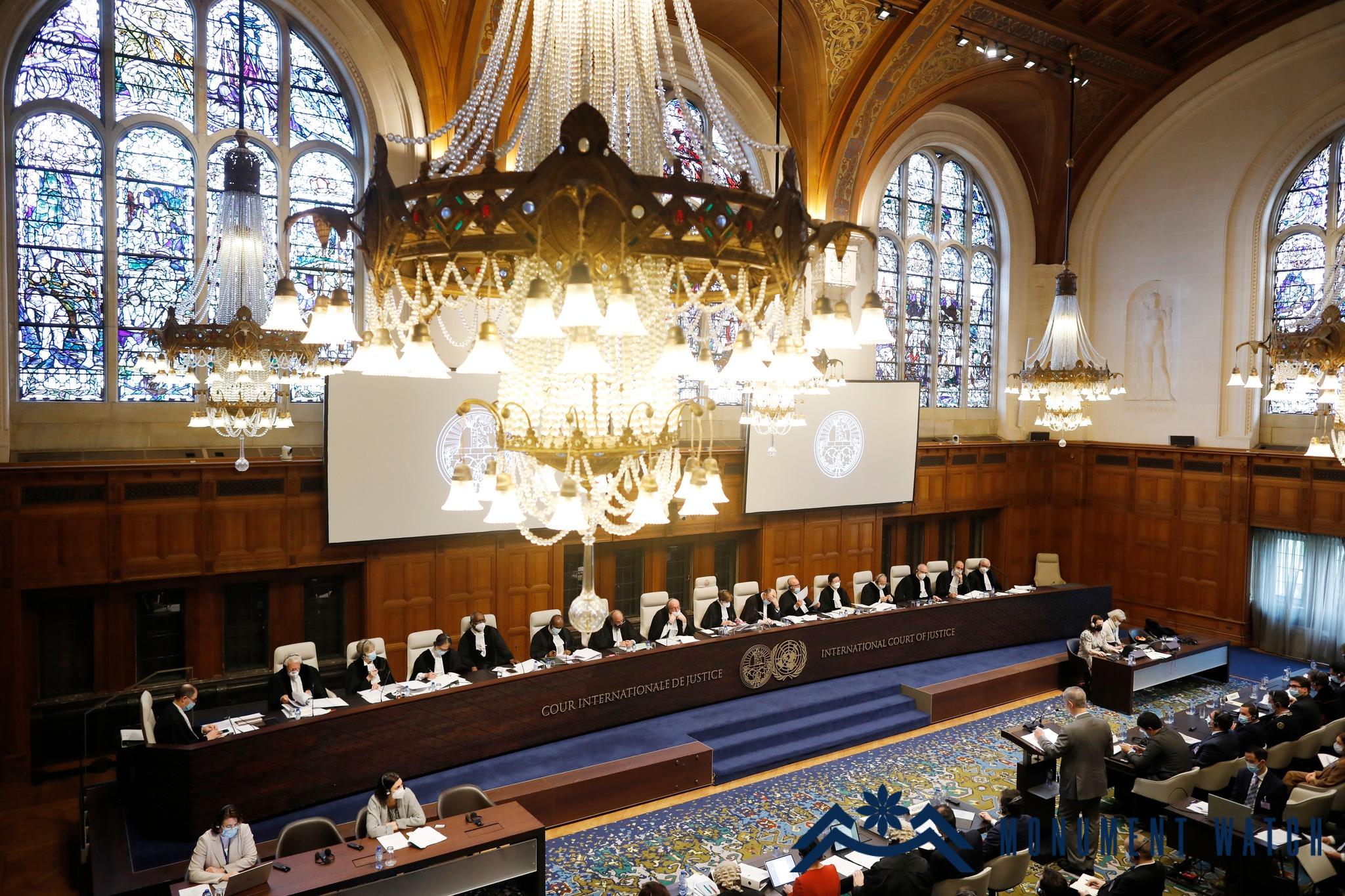
On February 22, 2023, within the framework of the “International Convention on the Elimination of All Forms of Racial Discrimination” the International Court of Justice in The Hague, made a decision on the unblocking of the Lachin Corridor, rejecting Azerbaijan’s counterclaim.
On February 22, 2023, the International Court of Justice in The Hague made the second decision regarding Azerbaijan's violations of the Convention on the Elimination of All Forms of Racial Discrimination adopted by the United Nations in 1965.
Armenia appealed to the Court on September 16, 2022 and stated that "Azerbaijan has subjected Armenians to racial discrimination for decades" and that Armenians have been subjected to systemic discrimination, mass murder, torture and other crimes based on ethnicity, as a result of the Armenian-hatred policy sponsored by the state of Azerbaijan. In addition, Armenia also asked the court to take into account that paragraph 2 of the decision of December 7, 2021 "Both Parties shall refrain from any action which might aggravate or extend the dispute before the Court or make it more difficult to resolve" is violated by Azerbaijan.
On December 28, 2022, Armenia submitted a lawsuit to the Court for the third time, requesting the adoption of temporary measures. It specifically states that on December 12, 2022, Azerbaijan "organized the blockade of the only road connecting the 120,000 ethnic Armenians of Nagorno-Karabakh with the outside world," and Armenia asks the court to specify the following two temporary measures:
- Azerbaijan must stop organizing and supporting alleged “protests” that are blocking unhindered free movement in both directions through the Lachin Corridor.
- Azerbaijan should ensure uninterrupted free movement of all people, vehicles and cargo along the Lachin Corridor in both directions.
On January 26, 2023, the representative of Armenia submitted an additional text to the court, specifically stating that " Azerbaijan must immediately fully restore and refrain from disrupting or obstructing the supply of natural gas and other utilities to Nagorno Karabakh" https://www.icj-cij.org/sites/default/files/2023-02/180-20230222-SUM-01-00-EN.pdf .
The court reminded that Azerbaijan, a state party to the Convention, violates Articles 2 and 5 of the Convention. According to Article 2, States Parties "condemn racial discrimination and undertake by all appropriate means and without delay to pursue a policy of eliminating racial discrimination in all its forms" and according to Article 5, States Parties undertake to guarantee the right of all before the law to: "from the right to move and reside freely within the borders of the state", "the right to leave any country, including one's own country, and to return to one's own country" and "the right to public health, medical care, social security and social services".
In addition, the Court concluded, in accordance with Article 41 of its Statute, that the continuation of Azerbaijan's blockade of the Lachin Corridor could lead to irreparable damage, so there is a need to take urgent measures https://www.icjcij.org/sites/default/files/2023-02/180-20230222-SUM-01-00-EN.pdf .
Therefore, the court found that since December 12, 2022, the connection between Nagorno-Karabakh and Armenia through the Lachin Corridor has been disrupted, which has caused a number of consequences, and that the impact on the victims continues to this day. Information available to the court indicates that the disruption of the Lachin Corridor prevented the transfer of Armenians or persons of ethnic origin hospitalized in Nagorno-Karabakh to medical facilities in Armenia for emergency medical care. Evidence also shows that there have been barriers to the importation of essential goods into Nagorno-Karabakh, causing shortages of food, medicine and other life-saving medical supplies.
The court also noted that restrictions on the import and purchase of goods essential to humanitarian needs, such as food and medicines, including life-saving drugs, treatment of chronic diseases or preventive care, and medical equipment, can have a serious detrimental effect on the life and health of individuals. http://www.icjcij.org/sites/default/files/2023-02/180-20230222-SUM-01-00-EN.pdf .
In the light of the considerations set forth above, the Court concludes that the Court's alleged disregard for the rights deemed credible may have irreparable consequences. The court also recalled the statement of the President of the Republic of Azerbaijan, the Prime Minister of the Republic of Armenia and the President of the Russian Federation on November 9, 2020, which, among others, stipulates that "Lachin Corridor, which is the road to ensure communication between Nagorno Karabakh and Armenia, remains the property of Russia Under the control of the peacekeeping forces of the Federation". The statement further states that "Azerbaijan guarantees the safety of persons, vehicles and cargo moving in both directions through the Lachin Corridor."
The court, by a vote of thirteen to two, notes the following temporary measure. In accordance with its obligations under the International Convention on the Elimination of All Forms of Racial Discrimination, to take all measures at its disposal to ensure the unhindered movement of people, vehicles and goods in both directions through the Lachine Corridor. In addition, we note that "orders on provisional measures under Article 41 of the Court are binding" and create international legal obligations for any party.
It should be added that the Court did not satisfy Armenia's requests to "stop organizing and supporting the alleged complaints by Azerbaijan" and "refrain from disrupting or obstructing the supply of natural gas and other utility services to Nagorno Karabakh" on the grounds of not providing sufficient evidence to the Court.
The court also reminds that the temporary measures mentioned in the decision of December 7, 2021 remain in force.
Let us add that referring to the claims against Armenia regarding alleged mine laying, the Court unanimously rejected these claims.